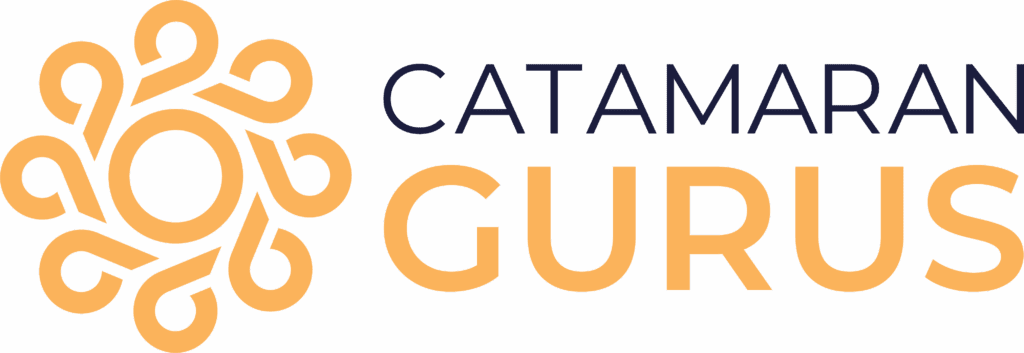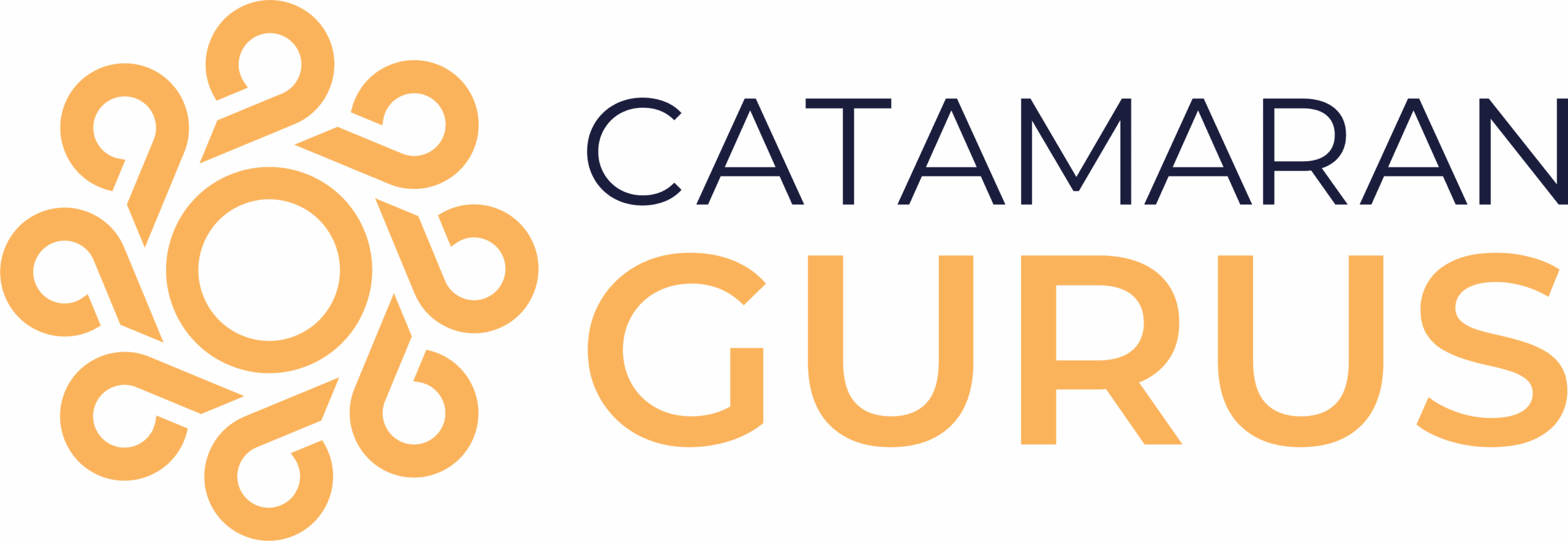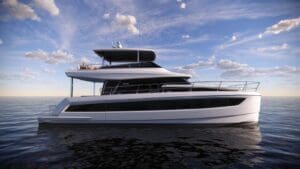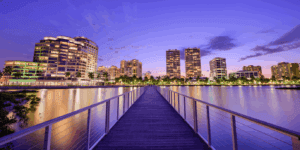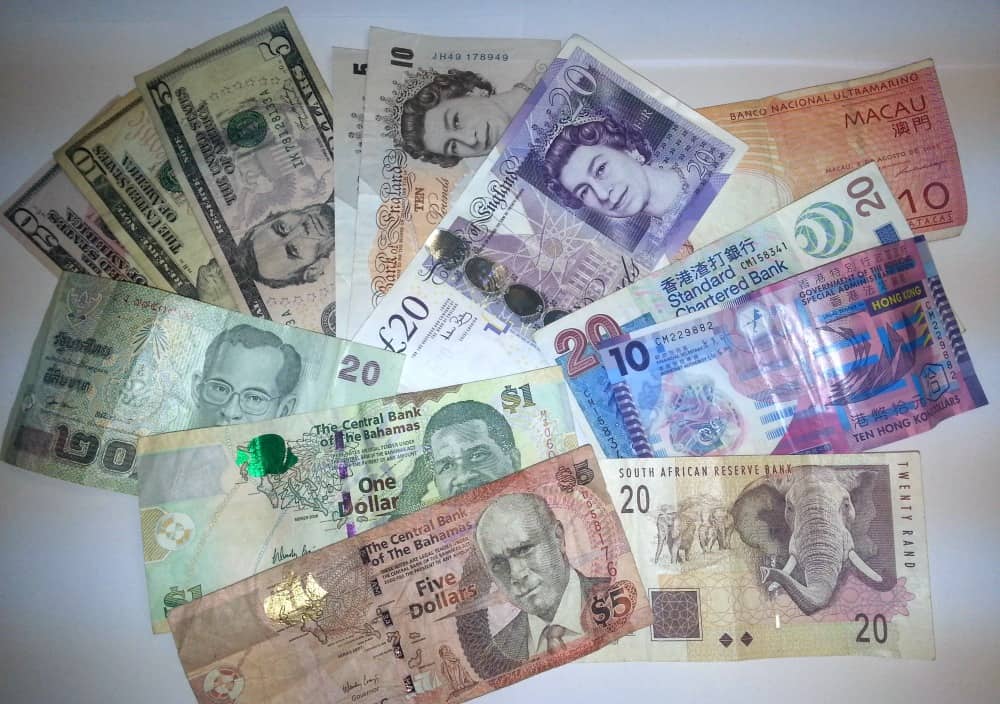
We have been travelling a lot more abroad of late on business and it forced me to brush up on my “overseas banking savvy”. When we first started cruising in the early nineties, we went to our local bank in South Africa, requested 10,000 Rand (about $4,200 at R2.35 to the dollar) in US dollar currency (smaller bills) and the same in traveller’s checks (sadly, no Kruger Rands). This was the sum total of our cruising kitty for about two years. We found several good hiding spots on the boat and secured our stash. There were no debit cards, prepaid travelers check cards or online banking. Thankfully banking has come a long way and if you can find a good secure connection, you can do your banking, no problem.
My best advice: Find a bank that has good online tools (most big banks do now) and has mobile banking available, so you can manage your accounts from the web anywhere in the world. You want to be able to transfer money from one account to another, transfer money to and from accounts in foreign countries (usually by phone with a secure pin), pay your bills and have good security.
You want a bank where you preferably have fee-free ATM charges and no or little foreign usage/transaction fees. You should have at least two bank accounts in case issues arise with one bank – we have one with Charles Schwabb for travel, ABSA (local SA) and Suntrust (National US) for personal banking, paying bills etc.
Banking Tips
-
- Avoid ATM Fees: These fees can add up pretty quickly if you use your card instead of cash on a regular basis. Pick a bank in the Global ATM Alliance network – a network of banks that waive ATM fees if you stay within the network. They are expensive when you go outside the network though, so be careful. Bank of America (US- I have heard conflicting things about this bank so please check), ABSA (South Africa), Barclays (England, Caribbean, Africa), Scotia Bank (Canada, Caribbean, some South American countries)– check with your local bank for coverage areas.
- Charles Schwab: (our primary bank card for travel) – It requires for you to open an Investor Checking Account (high yield checking account with no monthly fees or minimum deposit) – attached debit card is fee-free at any ATM in the world – you get refunded the fees at the end of the month.
- HSBC: It is an international bank and has ATMs everywhere, charge no fees except for a small fee for non-HSBC ATMs.
- (UPDATE: No longer available) ING Direct converted to Capital One: It’s a simple online savings account with a high Annual Percentage Rate, no fees or minimum balance and you can link it to your existing bank account and you can do remote deposits.
- Avoid Credit Card Fees: When we were in South Africa this last December, we were hit with horrendous foreign currency fees. Every time you use your card overseas, the bank converts the transaction into the local currency and charges a fee for the “service”. We did not pay attention and even though we have an American Express Platinum Business card and Chase Southwest Airlines Rapid Rewards Premier card with travel rewards and no overseas transaction fees, we used a variety of cards and paid the price. There are quite a few such cards that do not have the fees as described here by “nerdwallet”.
- Avoid VERY high Exchange Rate Fees: Upon our arrival in France at the airport in December, we changed a small amount of USD to French Francs to pay our cab from the airport to our hotel at the ‘bureau de change’. BIG mistake! The exchange ‘rate was ridiculously low and it is the case with all money exchange offices everywhere! All or most cabs have credit card facilities now, so use them! Your credit card will get you a much better exchange rate. For most travelers, the best way to get cash in the local currency is from the ATM where you will be most likely to get the best rate and even though there may be some fees for withdrawal, it is still cheaper than paying the fees and commissions at the money exchange office. If you change currency, make it count since every exchange will be charged processing, administration and service fees so don’t change $20 at a time! Traveler’s checks and the prepaid travelers Cheque Card like the Visa TravelMoney card, is another good option (make sure traveler’s checks are accepted at your destinations). Check the exchange rate of the country that you are traveling in before you change money.
- Avoid ATM Fees: These fees can add up pretty quickly if you use your card instead of cash on a regular basis. Pick a bank in the Global ATM Alliance network – a network of banks that waive ATM fees if you stay within the network. They are expensive when you go outside the network though, so be careful. Bank of America (US- I have heard conflicting things about this bank so please check), ABSA (South Africa), Barclays (England, Caribbean, Africa), Scotia Bank (Canada, Caribbean, some South American countries)– check with your local bank for coverage areas.
Be proactive when it comes to your banking while cruising / traveling. It could save you a bundle!
Please comment and give us your best tips

